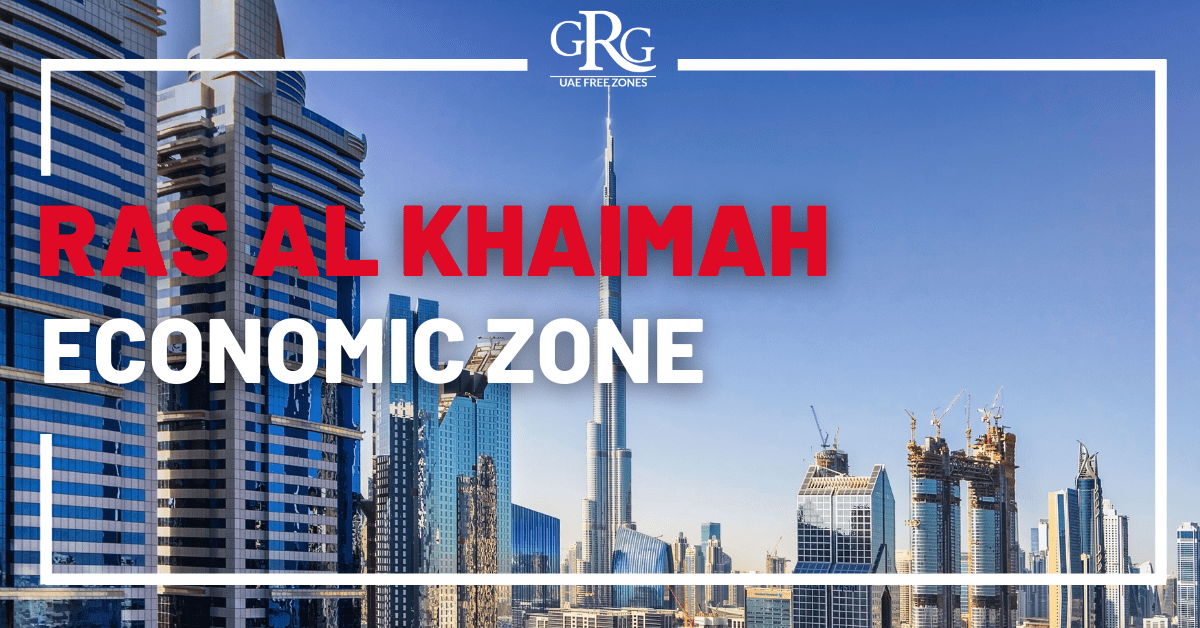Now Reading: Abu Dhabi Real Estate vs Dubai: Tax Structure Compared
-
01
Abu Dhabi Real Estate vs Dubai: Tax Structure Compared
Abu Dhabi Real Estate vs Dubai: Tax Structure Compared

Table of Contents
- Market Size: AED 761 billion in transactions in 2024, with 56% off-plan, per Deloitte, Arabian Business. real estate
- Rental Yields: 5–8% in luxury areas like Palm Jumeirah, 6–9% in mid-market like JVC, per Colife.
- Growth Drivers: 948 luxury sales above AED 15M, 45% foreign investors from 120 nationalities, per @Abbas_H_Sajwani, blog.psinv.net.
- Freehold Zones: Palm Jumeirah, Downtown Dubai, Emirates Hills, JVC, Dubai South, per topluxuryproperty.com.
Tax Structure Comparison
Below is a detailed comparison of the tax and fee structures for real estate in Abu Dhabi and Dubai in 2025, focusing on property ownership, transactions, and rental income, with implications for investors.
1. Annual Property Tax and Capital Gains Tax (CGT)

- Abu Dhabi:
- Property Tax: None, per tax.gov.ae, valorisimo.com.
- CGT: None on property sale profits, regardless of holding period or nationality, per loamrealestate.com.
- Example: Selling a AED 4 million Saadiyat Island villa for AED 4.8 million yields a tax-free AED 800,000 gain, per nasluxury.com.
- Investor Impact: Enhances 10–15% ROI for off-plan flips and 6–10% rental yields, per abudhabioffplan.ae.
- Dubai:
- Property Tax: None, per tax.gov.ae, tencohomes.com.
- CGT: None, e.g., a AED 5 million Palm Jumeirah villa sold for AED 6 million yields a tax-free AED 1 million gain, per propertyfinder.ae.
- Investor Impact: Supports 12–18% ROI for off-plan and 5–8% yields in luxury areas, per Colife.
- Comparison:
- Similarities: Both emirates have no property tax or CGT, making them attractive compared to high-tax markets (e.g., U.S. with 15–20% CGT, UK with 18–28%), per Understanding UAE’s 15% Corporate Tax.
- Differences: None; both offer identical tax-free ownership and sales.
- Investor Action:
- Retain purchase/sale records for home country tax audits, as foreign investors may face CGT abroad, offset by 140+ DTAs, per emiratesadvocates.com.
- Consult advisors (AED 5,000–15,000) for DTA benefits, per blue-shark.ae.
2. Property Transaction Fees

Transaction fees apply when buying or selling properties, impacting upfront and exit costs.
- Abu Dhabi:
- Transfer Fee: 2% of sale price or market value (higher of the two), typically buyer-paid but negotiable, per nasluxury.com, tamimi.com.
- Example: AED 40,000 for a AED 2 million Yas Island villa, split AED 20,000 each if agreed, per MyBayut.
- Registration Fee: AED 1,000 for properties up to AED 500,000; higher values align with 2% transfer fee, per valorisimo.com.
- Mortgage Registration: 0.1–0.25% of loan amount + AED 2,000–4,000, e.g., AED 6,750 for a AED 1.5 million loan, per mortgagefinder.ae.
- Agent Fee: 2% of sale price + 5% VAT, e.g., AED 40,000 + AED 2,000 VAT for AED 2 million, per roseislandre.com.
- Musataha/Usufruct: 4% of contract value (e.g., AED 100,000 for a 50-year, AED 50,000/year musataha), per timehomesrealestate.com.
- Total: 4–7% of property value, e.g., AED 80,000–140,000 for AED 2 million, per nasluxury.com.
- Dubai:
- Transfer Fee (DLD): 4% of sale price, split 2% buyer/2% seller, e.g., AED 80,000 for AED 2 million (AED 40,000 each), per dubailand.gov.ae.
- Registration Fee: AED 4,000 for properties over AED 500,000, per properstar.co.uk.
- Mortgage Registration: 0.25% of loan + AED 2,000–4,000, e.g., AED 7,750 for AED 1.5 million loan, per mortgagefinder.ae.
- Agent Fee: 2% + 5% VAT, e.g., AED 40,000 + AED 2,000 VAT for AED 2 million, per propertyfinder.ae.
- Total: 6–12% of property value, e.g., AED 120,000–240,000 for AED 2 million, per tencohomes.com.
- Comparison:
- Similarities: Both charge agent fees (2% + 5% VAT) and similar mortgage registration rates (0.25% + AED 2,000–4,000).
- Differences:
- Abu Dhabi’s 2% transfer fee is half Dubai’s 4%, saving AED 40,000 on a AED 2 million purchase.
- Abu Dhabi’s AED 1,000 registration for lower-value properties is cheaper than Dubai’s AED 4,000.
- Abu Dhabi’s musataha/usefruct (4%) applies to non-freehold structures, absent in Dubai’s freehold-focused market.
- Investor Impact: Abu Dhabi’s lower transaction costs make it more cost-effective for mid-market buyers (AED 1–3M), while Dubai’s higher fees are offset by its larger luxury market (e.g., 948 sales above AED 15M), per @Abbas_H_Sajwani.
- Investor Action:
- Budget 4–7% in Abu Dhabi, 6–12% in Dubai, per nasluxury.com, properstar.co.uk.
- Negotiate transfer fee splits in Abu Dhabi or DLD waivers for Dubai off-plan, per danubeproperties.ae.
- Verify fees via DMT (www.dmt.gov.ae) or DLD (www.dubailand.gov.ae).
3. Value Added Tax (VAT) on Transactions and Services
VAT, introduced in 2018 at 5%, applies to specific real estate transactions and services, per mof.gov.ae, cleartax.com.
- Abu Dhabi:
- Residential Sales: Zero-rated (0%) for new villas/apartments within three years of completion; exempt for resales, per valorisimo.com.
- Example: A AED 3 million new Saadiyat villa incurs no VAT, saving AED 150,000, per aldar.com.
- Commercial Sales/Rentals: 5% VAT, e.g., AED 150,000 on a AED 3 million Al Maryah Island office sale, AED 10,000 on AED 200,000/year lease, per nasluxury.com.
- Services: 5% VAT on agent, legal, and management fees, e.g., AED 2,000 on AED 40,000 agent fee, AED 500 on AED 10,000 legal fee, per roseislandre.com.
- Dubai:
- Residential Sales: Zero-rated for new properties within three years; exempt for resales, e.g., no VAT on a AED 2 million JVC off-plan apartment, per propertyfinder.ae.
- Commercial Sales/Rentals: 5% VAT, e.g., AED 100,000 on a AED 2 million Business Bay office, per dxbinteract.com.
- Services: 5% VAT on agent, legal, and management fees, identical to Abu Dhabi, per tencohomes.com.
- Comparison:
- Similarities: Both emirates offer zero-rated VAT for new residential sales, exempt resales, and 5% VAT on commercial transactions and services.
- Differences: None; VAT structures are identical under federal law.
- Investor Impact: Zero-rated VAT saves AED 100,000–250,000 on AED 2–5M residential purchases in both markets, but commercial investors face higher costs, reclaimable if VAT-registered, per taxually.com.
- Investor Action:
- Target new residential properties (e.g., Yas Acres in Abu Dhabi, Emaar Beachfront in Dubai) for zero-rated VAT, per aldar.com, emaar.com.
- Register for VAT if commercial rental income exceeds AED 375,000/year, per mof.gov.ae.
- Retain VAT invoices for audits or refunds, per cleartax.com.
4. Rental Income Tax (9% Corporate Tax)
The federal 9% corporate tax (CT), effective June 2023, applies to rental income in both emirates, per tax.gov.ae, @regfollower.
- Abu Dhabi:
- Tax Rate: 9% on net rental income above AED 375,000/year, per cleartax.com.
- Deductions: Maintenance (AED 5,000–15,000), service charges (AED 10–30/sq m), management fees (5–10% rent), mortgage interest (e.g., AED 60,000 on AED 2M loan), insurance (AED 5,000–15,000), per nasluxury.com.
- Example: AED 600,000 income from two Reem Island villas, less AED 100,000 deductions, incurs AED 45,000 tax (9% of AED 500,000), saving AED 9,000, per blue-shark.ae.
- Additional Fees:
- Tawtheeq Registration: 4% of annual rent, capped at AED 10,000, per valorisimo.com.
- Housing Fee: 3% of rental value, typically tenant-paid, e.g., AED 3,000 on AED 100,000 rent, per MyBayut.
- Tourism Fee: 6% on short-term rentals, e.g., AED 60/night on AED 1,000, per bnbcalc.com.
- Dubai:
- Tax Rate: 9% on income above AED 375,000, identical to Abu Dhabi, per tax.gov.ae.
- Deductions: Same as Abu Dhabi, e.g., AED 40,000 service charges, AED 80,000 mortgage interest on a AED 2M Palm Jumeirah apartment, per tencohomes.com.
- Example: AED 800,000 income from three JVC apartments, less AED 120,000 deductions, incurs AED 61,200 tax (9% of AED 680,000), saving AED 10,800.
- Additional Fees:
- Smart Rental Index: No direct cost, but 15% annual rent increase cap, per jobxdubai.com.
- Housing Fee: 3.5% of rental value, per property, e.g., AED 20,000–30,000/year, per loamrealestate.com.
- Tourism Fee: 7% on short-term rentals, plus AED 10–20/day room fees, per dxbinteract.com.
- Comparison:
- Similarities: Identical 9% CT rate, same deduction categories, and tax-exempt threshold (AED 375,000).
- Differences:
- Abu Dhabi’s Tawtheeq (4%, capped at AED 10,000) is unique, adding AED 1–10,000/year for lease registration, absent in Dubai.
- Dubai’s housing fee (3.5%) is slightly higher than Abu Dhabi’s 3%, adding AED 500–2,000/year for AED 100,000 rent.
- Dubai’s tourism fee (7% + AED 10–20/day) is higher than Abu Dhabi’s 6%, increasing short-term rental costs, e.g., AED 70 vs. AED 60 on AED 1,000/night.
- Investor Impact: Abu Dhabi’s lower housing and tourism fees favor rental income, but Dubai’s larger short-term rental market (18% growth vs. 15%) offsets higher fees, per invictaproperty.com, nasluxury.com.
- Investor Action:
- Register for EmaraTax by March 31, 2025, if income exceeds AED 375,000, per tax.gov.ae.
- Maximize deductions with detailed records (invoices, contracts), per emiratesadvocates.com.
- Register leases via Tawtheeq in Abu Dhabi or Ejari in Dubai, per dmt.gov.ae, dubailand.gov.ae.
5. Other Tax Incentives and Proposals
- Abu Dhabi:
- Proposed Refundable Tax Credit: Under consideration for 2025 to support high-value employment (e.g., C-suite roles), potentially benefiting villa investors in Saadiyat, per gulfnews.com.
- R&D Tax Incentive: Supports property tech in free zones, per gulfnews.com.
- White Land Tax (1–4%): Proposed for undeveloped land, not yet implemented, per tamimi.com.
- Dubai:
- REIT Tax Exemptions: Temporary corporate tax exemptions for Real Estate Investment Trusts, pending approval, per @regfollower.
- No Specific 2025 Proposals: Focus remains on digitalization (e.g., blockchain deeds), per @D_Volosiuc.
- Comparison:
- Similarities: Both emirates explore incentives to boost economic activity.
- Differences: Abu Dhabi’s proposed tax credit and R&D incentives target broader growth, while Dubai focuses on REITs and digital innovation.
- Investor Impact: Abu Dhabi’s incentives may attract corporate investors, while Dubai’s REIT focus benefits diversified portfolios, per nasluxury.com, tencohomes.com.
- Investor Action:
- Monitor Ministry of Finance (www.mof.gov.ae) for Abu Dhabi’s tax credit updates.
- Explore REIT investments in Dubai via DFM, per @regfollower.
Key Considerations
- Risks:
- Non-compliance with EmaraTax, Tawtheeq, or Ejari risks fines (AED 10,000–500,000), per mondaq.com.
- Foreign CGT reporting failures may incur penalties (e.g., $10,000+ in U.S.), per IRS.gov.
- 250,000 new units by 2026 could trigger a 15% price correction in mid-market areas, per Fitch Ratings, gulfnews.com.
- Cost Summary:
- Abu Dhabi: 4–7% transaction fees, AED 10–30/sq m service charges, 3% housing fee, 6% tourism fee, 9% CT on rentals > AED 375,000, per nasluxury.com.
- Dubai: 6–12% transaction fees, AED 15–30/sq ft service charges, 3.5% housing fee, 7% tourism fee, 9% CT, per tencohomes.com.
- Market Context:
- Abu Dhabi: 40% foreign investment, 4.2% real estate growth in 2024, per luxuryresidences.in, gulfnews.com.
- Dubai: 45% foreign investment, 56% off-plan sales, per blog.psinv.net, Deloitte.
Recommendations
- Budget AED 500,000–2 Million:
- Abu Dhabi: Target Al Reem Island off-plan (6–8% yields) for lower 2% transfer fees, zero-rated VAT, per abudhabioffplan.ae.
- Dubai: Target JVC off-plan (6–9% yields), negotiate DLD waivers, per danubeproperties.ae.
- Action: Budget 4–7% (Abu Dhabi) or 6–12% (Dubai) fees, verify via DMT/DLD.
- Budget AED 2–10 Million:
- Abu Dhabi: Saadiyat Island villas (6–10% yields), deduct mortgage interest (AED 50,000–100,000), per nasluxury.com.
- Dubai: Palm Jumeirah apartments (5–8% yields), list on Airbnb (18% growth), per propertyfinder.ae.
- Action: Register for EmaraTax by March 31, 2025, consult PwC for foreign CGT, per tax.gov.ae.
- Budget AED 10 Million+:
- Abu Dhabi: Al Maryah Island luxury/commercial (5–7% yields), monitor tax credit, per aldar.com.
- Dubai: Emirates Hills villas (5–7% yields), explore REITs, per nakheel.com.
- Action: Hire lawyers (AED 5,000–15,000), verify via DMT/DLD, per emiratesadvocates.com.
- Compliance: Use RERA agents, register leases via Tawtheeq (Abu Dhabi) or Ejari (Dubai), file CT by February 28, 2025, for 2024–25, per dxbinteract.com.
- Monitor: Track The National, Emirates 24/7, Cityscape Abu Dhabi 2025, per thenationalnews.com, cbnme.com.
1. Property Tax and CGT
- Abu Dhabi: None, e.g., AED 800K tax-free gain on AED 4M villa.
- Dubai: None, e.g., AED 1M tax-free gain on AED 5M villa.
- Impact: Boosts 10–15% ROI (Abu Dhabi), 12–18% (Dubai).
- Action: Keep records, consult PwC for foreign CGT (AED 5K–15K).
2. Transaction Fees
- Abu Dhabi: 2% transfer, AED 1K registration, 0.25% mortgage, 2% agent + 5% VAT, 4% musataha; total 4–7%.
- Dubai: 4% DLD, AED 4K registration, 0.25% mortgage, 2% agent + 5% VAT; total 6–12%.
- Impact: Abu Dhabi cheaper by AED 40K–100K on AED 2M property.
- Action: Negotiate splits/waivers, verify via www.dmt.gov.ae, www.dubailand.gov.ae.
3. VAT
- Abu Dhabi: 0% on new residential, 5% on commercial/services, e.g., AED 150K on AED 3M office.
- Dubai: Identical, e.g., no VAT on AED 2M JVC apartment.
- Impact: Saves AED 100K–250K on residential, commercial VAT reclaimable.
- Action: Target new properties, register for VAT if commercial, retain invoices.
4. Rental Income Tax (9% CT)
- Abu Dhabi: 9% on income > AED 375K, deductions save AED 9K on AED 600K, 4% Tawtheeq, 3% housing, 6% tourism.
- Dubai: 9% on income > AED 375K, deductions save AED 10.8K on AED 800K, 3.5% housing, 7% tourism.
- Impact: Abu Dhabi’s lower fees favor rentals, Dubai’s Airbnb growth offsets costs.
- Action: Register EmaraTax by March 31, 2025, maximize deductions, register leases.
5. Incentives
- Abu Dhabi: Proposed tax credit, R&D incentive, white land tax pending.
- Dubai: REIT exemptions, blockchain deeds.
- Impact: Abu Dhabi targets growth, Dubai focuses on REITs/digital.
- Action: Monitor www.mof.gov.ae, explore REITs via DFM.
Considerations
- Risks: Fines, foreign CGT penalties, 15% correction, $65/barrel oil.
- Costs: Abu Dhabi 4–7% transaction, Dubai 6–12%; service charges, 9% CT.
- Market: Abu Dhabi 40% foreign, 4.2% growth; Dubai 45% foreign, 56% off-plan.
Conclusion
Abu Dhabi’s real estate tax structure in 2025 is more cost-effective than Dubai’s, with lower transaction fees (4–7% vs. 6–12%) and housing/tourism fees, favoring mid-market and rental investors. Both emirates share no property tax, no CGT, zero-rated VAT on new residential sales, and 9% CT on rentals, supporting high ROI (10–15% in Abu Dhabi, 12–18% in Dubai). Investors should budget accordingly, register for EmaraTax by March 31, 2025, verify via DMT/DLD, and monitor incentives to optimize returns in Saadiyat or Palm Jumeirah. watch more
read more: Top 3 Tax Incentives for Buying Villas in Abu Dhabi






















